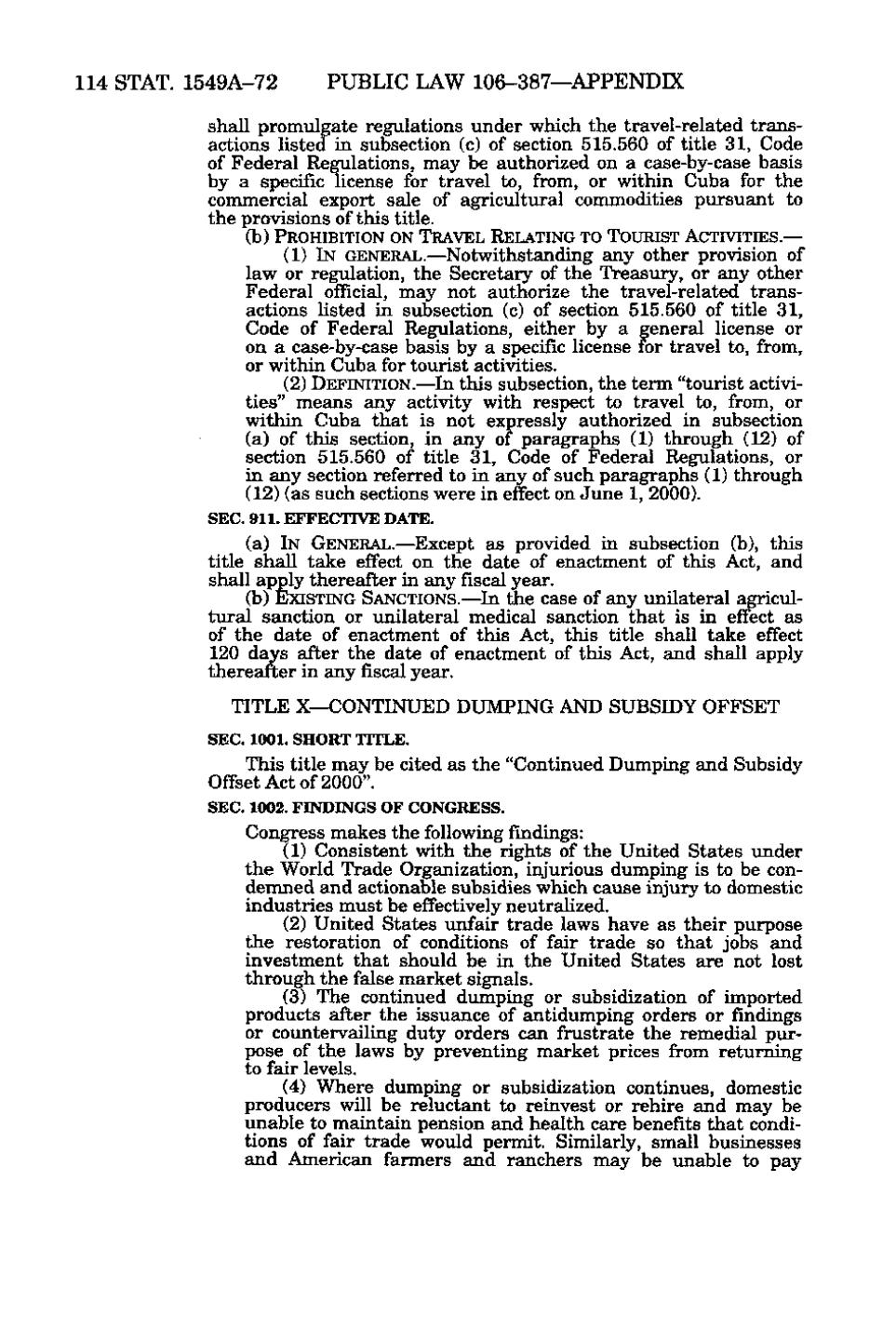114 STAT. 1549A-72 PUBLIC LAW 106-387—APPENDIX shall promulgate regulations under which the travel-related transactions listed in subsection (c) of section 515.560 of title 31, Code of Federal Regulations, may be authorized on a case-by-case basis by a specific license for travel to, from, or within Cuba for the commercial export sale of agricultural commodities pursuant to the provisions of this title. (b) PROHIBITION ON TRAVEL RELATING TO TOURIST ACTIVITIES.— (1) IN GENERAL. —Notwithstanding any other provision of law or regulation, the Secretary of the Treasury, or any other Federal official, may not authorize the travel-related transactions listed in subsection (c) of section 515.560 of title 31, Code of Federal Regulations, either by a general license or on a case-by-case basis by a specific license for travel to, from, or within Cuba for tourist activities. (2) DEFINITION.—In this subsection, the term "tourist activities" means any activity with respect to travel to, from, or within Cuba that is not expressly authorized in subsection (a) of this section, in any of paragraphs (1) through (12) of section 515.560 of title 31, Code of Federal Regulations, or in any section referred to in any of such paragraphs (1) through (12) (as such sections were in effect on June 1, 2000). SEC. 911. EFFECTIVE DATE. (a) IN GENERAL. —Except as provided in subsection (b), this title shall take effect on the date of enactment of this Act, and shall apply thereafter in any fiscal year. (b) EXISTING SANCTIONS.—In the case of any unilateral agricultural sanction or unilateral medical sanction that is in effect as of the date of enactment of this Act, this title shall take effect 120 days after the date of enactment of this Act, and shall apply thereafter in any fiscal year. TITLE X—CONTINUED DUMPING AND SUBSIDY OFFSET SEC. 1001. SHORT TITLE. This title may be cited as the "Continued Dumping and Subsidy OfrsetAct of2000". SEC. 1002. FINDINGS OF CONGRESS. Congress makes the following findings: (1) Consistent with the rights of the United States under the World Trade Organization, injurious dumping is to be condemned and actionable subsidies which cause injury to domestic industries must be effectively neutralized. (2) United States unfair trade laws have as their purpose the restoration of conditions of fair trade so that jobs and investment that should be in the United States are not lost through the false market signals. (3) The continued dumping or subsidization of imported products after the issuance of antidumping orders or findings or countervailing duty orders can frustrate the remedial purpose of the laws by preventing market prices from returning to fair levels. (4) Where dumping or subsidization continues, domestic producers will be reluctant to reinvest or rehire and may be unable to maintain pension and health care benefits that conditions of fair trade would permit. Similarly, small businesses and American farmers and ranchers may be unable to pay
�
